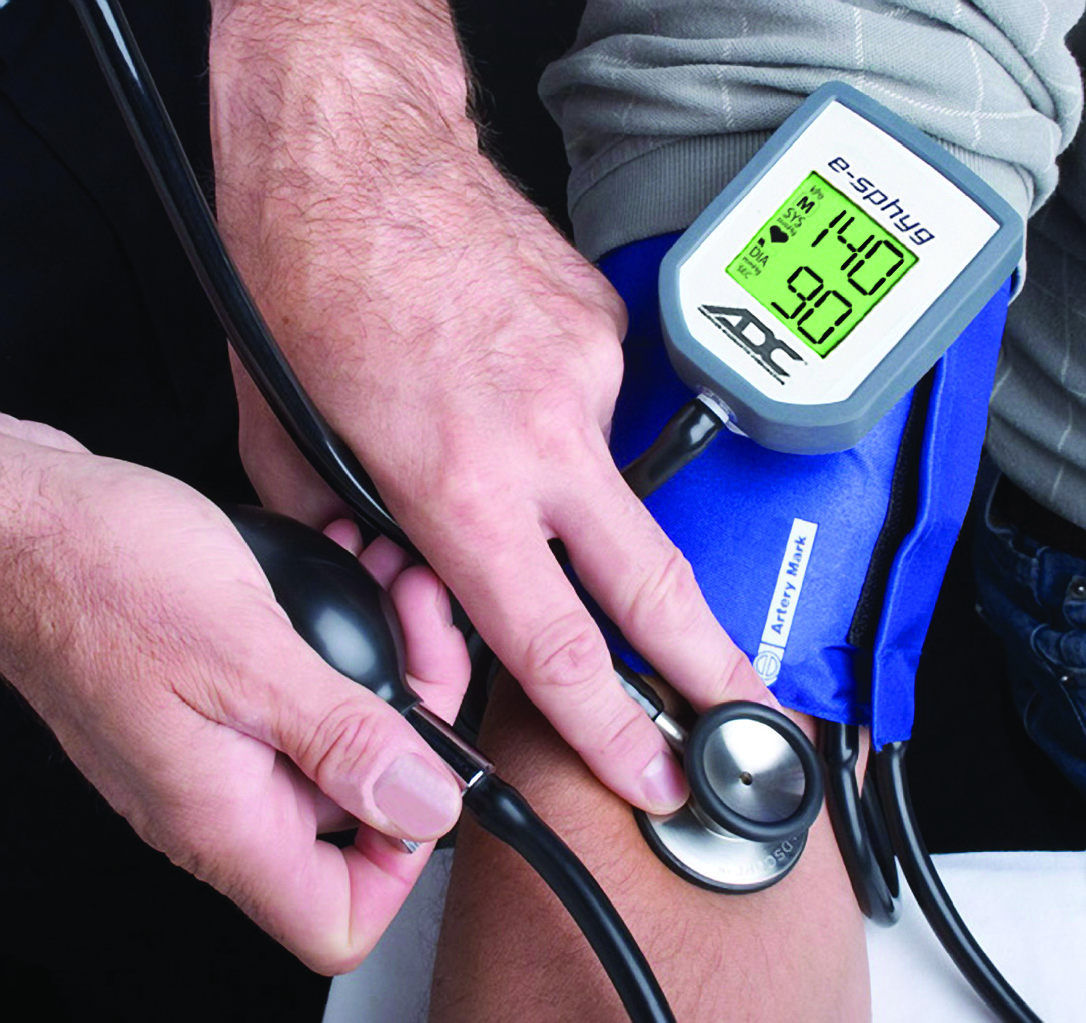 While your blood pressure rises and falls naturally throughout the day, prolonged high levels can cause health problems. In fact, high blood pressure, or hypertension, is the most significant risk factor for heart disease and stroke—the leading causes of death for Americans.
While your blood pressure rises and falls naturally throughout the day, prolonged high levels can cause health problems. In fact, high blood pressure, or hypertension, is the most significant risk factor for heart disease and stroke—the leading causes of death for Americans.
There are no symptoms of high blood pressure, so people who have it may not notice until it is too late. Only when the damage has been done—hardened arteries and decreased blood flow—will you start to feel the evidence in chest pain (angina), heart failure or heart attack. Therefore, it is important to have your blood pressure checked regularly.
Health experts recommend a reading of less than 120/80. The top number (systolic) represents the pressure against blood vessel walls when your heart beats, while the bottom number (diastolic) is the pressure when your heart is at rest, or between beats. Hypertension, or high blood pressure, begins at 140/90 so everyone should aim to keep their blood pressure below this level. Professional drivers could be disqualified with readings above 140/90.
While there is no cure, high blood pressure can be managed. Medication is one option; however, simple changes in lifestyle may do the trick without popping any pills. They include:
Eat a Healthy Diet—In addition to eating lots of fruits, vegetables and low fat dairy products and limiting meats and oils, reducing your salt/sodium intake naturally lowers blood pressure.
Quit Smoking—In addition to increasing risk for illness, injuries and cancers, smoking constricts arteries. This reduces blood flow to the heart, brain and other organs. When you stop smoking, your risk of heart disease and stroke can be cut in half after just one year.
Maintain a Healthy Weight—Too much body fat, especially around the waist, puts you at a higher risk for health problems.
Limit Alcohol—While an occasional glass of wine may be beneficial to heart health, excessive alcohol intake actually increases your blood pressure and may reduce the effectiveness of medications, according to Mayo Clinic. If you choose to drink, stick to one drink per day for women or two drinks for men.
Prevent and Control Diabetes—Diabetes, while treatable, increases your risk of heart disease. Some people can prevent or manage it through diet and exercise, but others may require medication. If you have a family history of diabetes or have developed the disease, it is important to work with your doctor to manage it and reduce any other risk factors.
Visit the American Heart Association to learn more about high blood pressure or consult your physician.